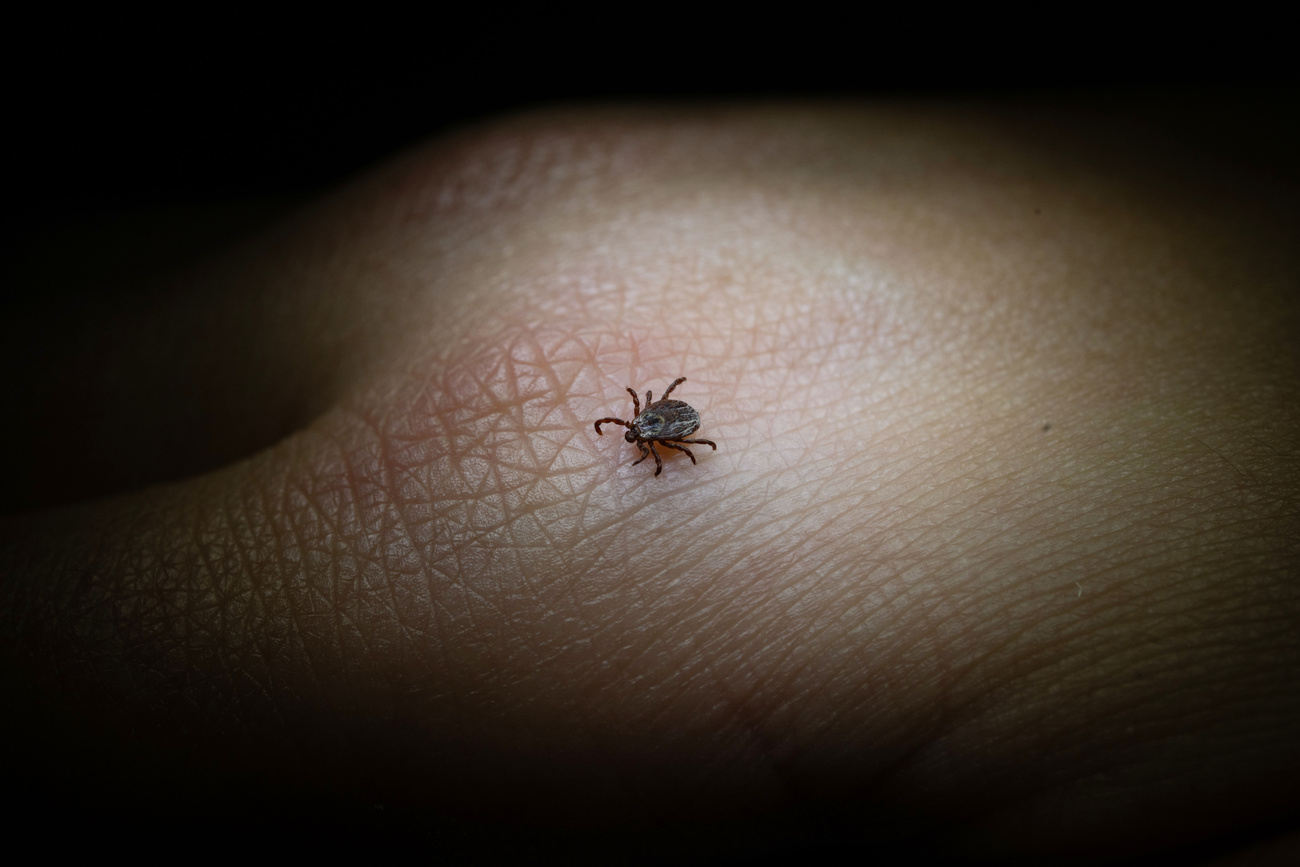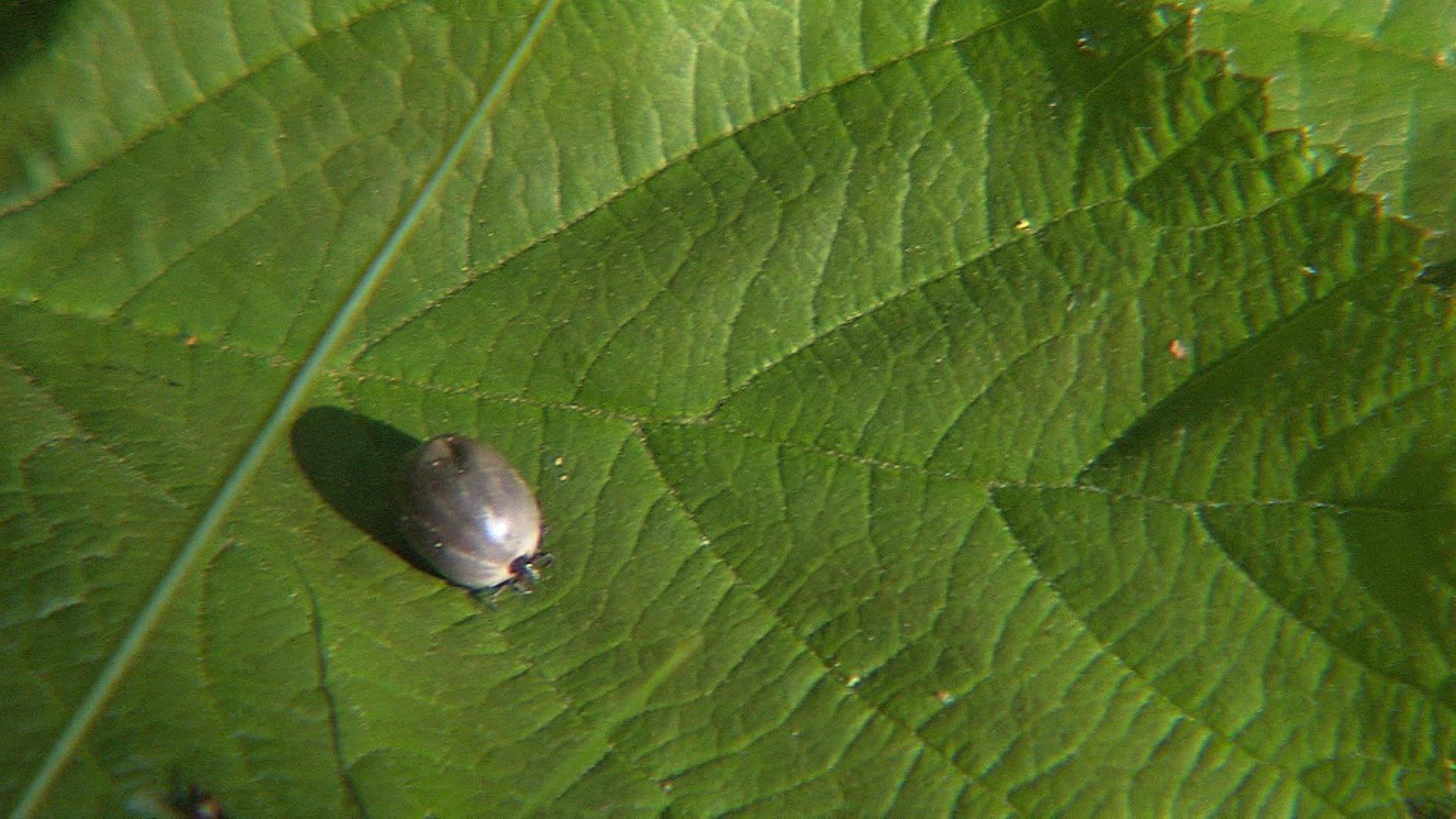
Tick-borne encephalitis cases double in Switzerland compared to previous year

So far, Switzerland has recorded more than twice as many cases of tick-borne encephalitis (TBE) compared to the same period last year. Experts suggest that ticks are becoming more active due to climate change and mild winters.
As of the end of March 2024, the Federal Office of Public Health (FOPH) had recorded over twice as many cases of tick-borne disease TBE compared to the same period in 2023. According to the FOPH, there has been an increase in the disease’s incidence over the past five years.

More
Nation urged to vaccinate against tick-borne disease
The FOPH has reported 27 cases of tick-borne encephalitis so far this year. In 2023, there were eleven cases at the same time. After the peak year of 2020, this year’s TBE case numbers have so far been within the range of the annual fluctuations observed, wrote the FOPH. Tick-borne encephalitis virus can lead to meningitis, and vaccination is recommended by the FOPH from the age of six.
Meanwhile, by the end of March 2024, fewer cases of the tick-borne disease borreliosis (also known as Lyme disease) were registered compared to the same period last year.
+Ticks in Switzerland transmit more diseases than thought
The FOPH is aware of 489 cases, compared to 535 in the previous year. Lyme disease, an illness caused by a bacterial pathogen, typically occurs as a flu-like illness. However, it can also result in paralysis or heart problems, among other complications. Unlike TBE, cases of Lyme disease are not notifiable.
Meanwhile, 12 cases of tularaemia were reported to the FOPH by the end of March 2024. There were nine in the same period last year. Without treatment, the disease, also known as rabbit fever, can be fatal.

More
Doubling of cases of tick-borne encephalitis reported
Reviewing the overall statistics for the previous year, the FOPH recorded a decline in all three tick-borne diseases: TBE cases dropped from 380 in 2022 to 298 in 2023. Reported cases of Lyme disease decreased from 9,162 to 8,742, and tularaemia cases fell from 120 to 111.
Experts have long observed that ticks are becoming more active due to climate change and mild winters. In Switzerland, the entire Central Plateau, the Alpine foothills, and canton Ticino are now considered high-risk areas for tick bites.
Translated from German by DeepL/sp
This news story has been written and carefully fact-checked by an external editorial team. At SWI swissinfo.ch we select the most relevant news for an international audience and use automatic translation tools such as DeepL to translate it into English. Providing you with automatically translated news gives us the time to write more in-depth articles.
If you want to know more about how we work, have a look here, and if you have feedback on this news story please write to english@swissinfo.ch.

In compliance with the JTI standards
More: SWI swissinfo.ch certified by the Journalism Trust Initiative


























You can find an overview of ongoing debates with our journalists here . Please join us!
If you want to start a conversation about a topic raised in this article or want to report factual errors, email us at english@swissinfo.ch.